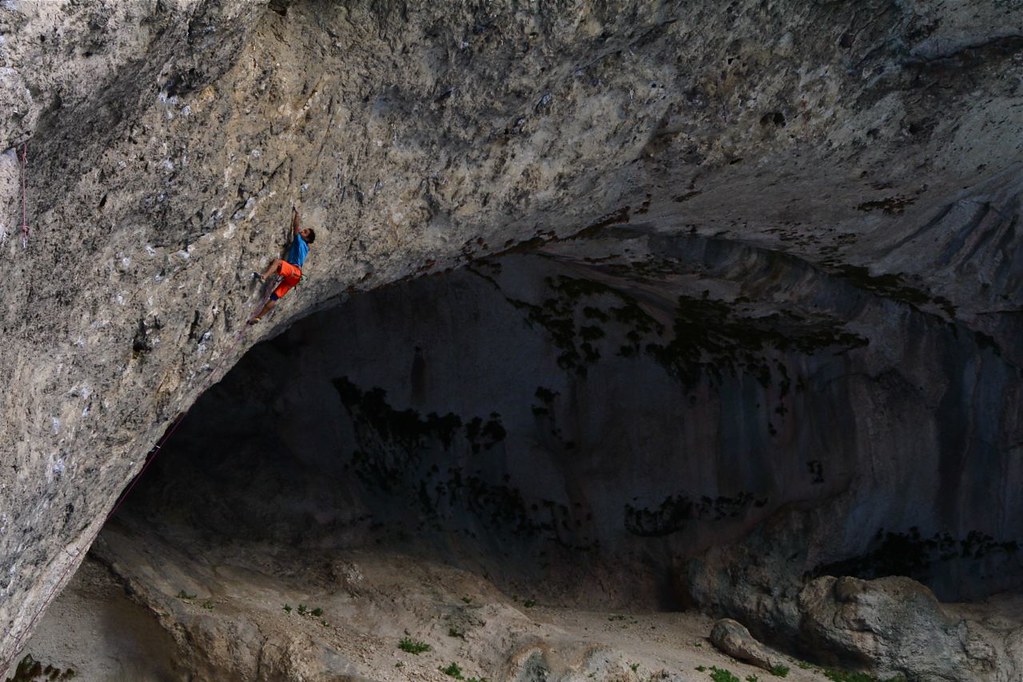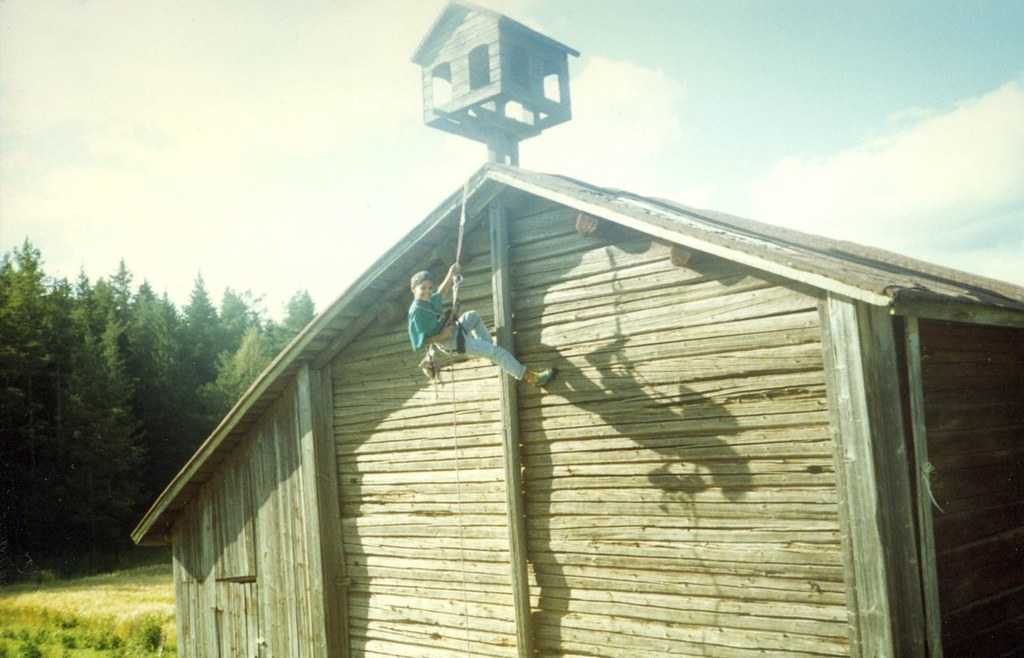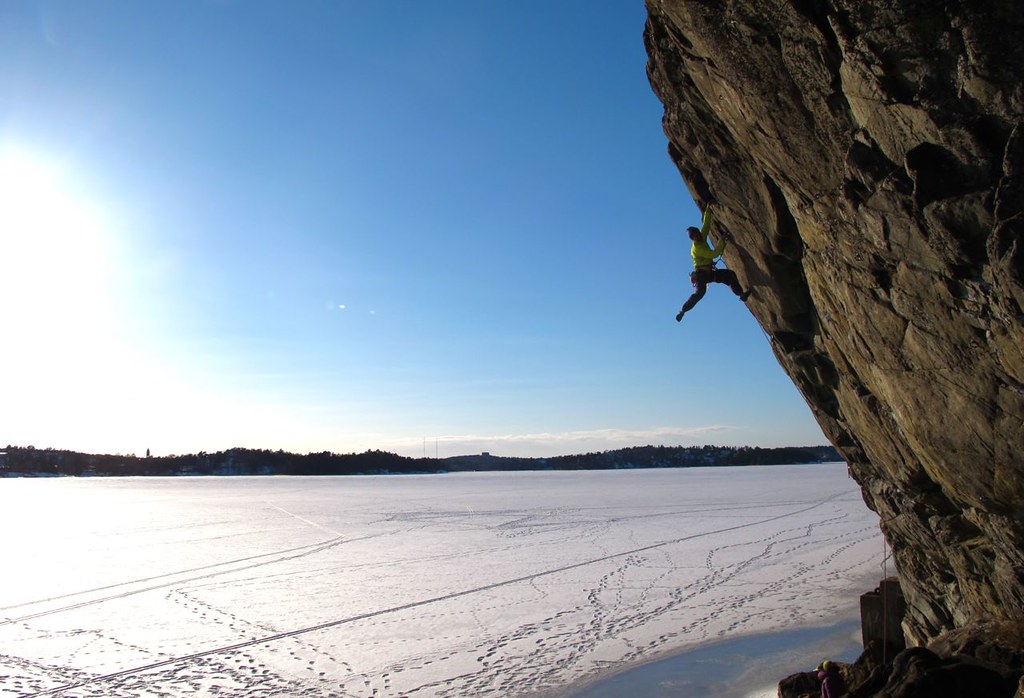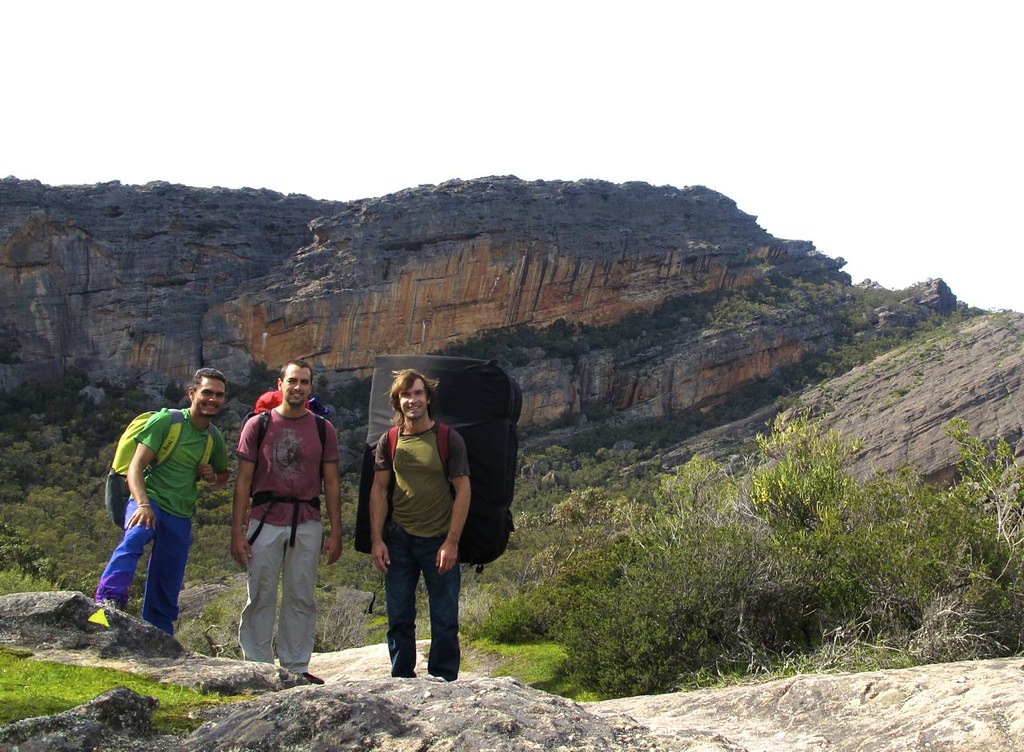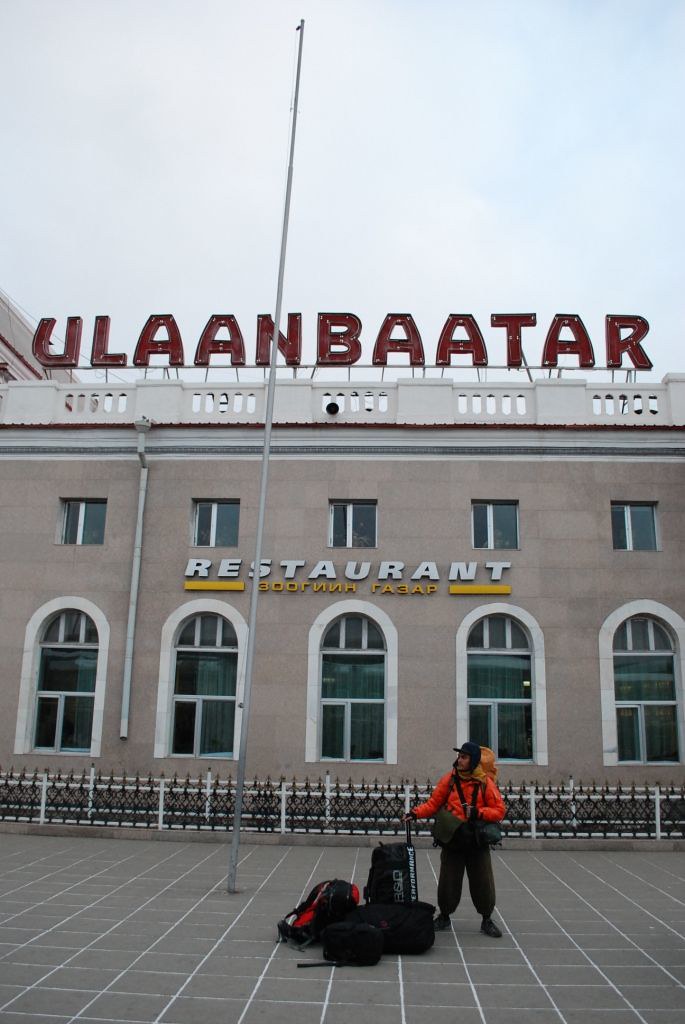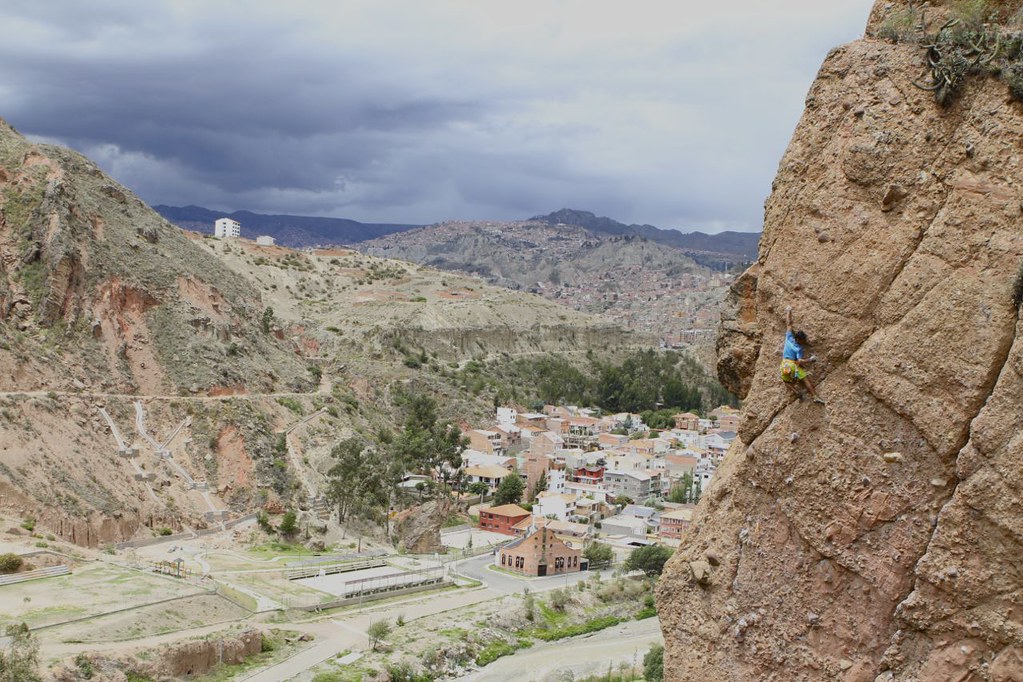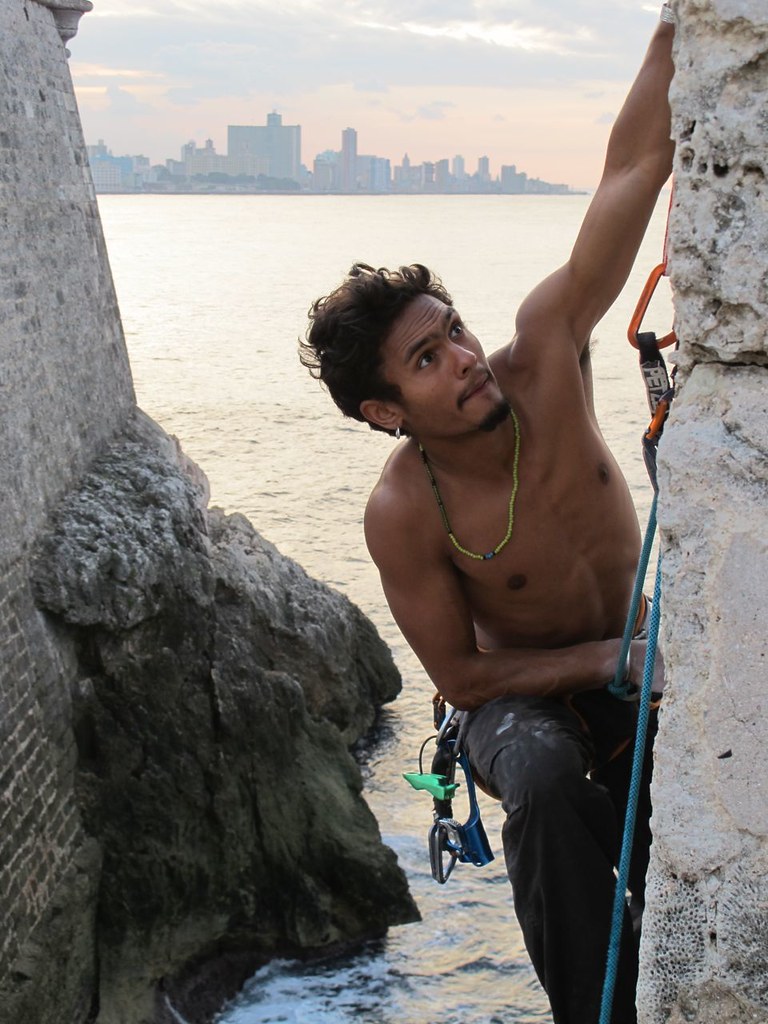Travelling, climbing, family and training - how do you fit that all into a year well spent without going to a nine-to-five job? If you’re Said Belhaj, a professional climber from Sweden, it’s easy. You train three months at home and then travel the world and climb each day! A Mountain People Interview.
Hi Said, I know you a bit - but my reader’s don’t. Could you please briefly introduce yourself and tell us what you do?
I was born and raised in Göteborg, Sweden to a father from Morocco and mother from Finland. I have 2 brothers and I live with my girlfriend. I’m 33 years old and have been climbing for over 20 years, 14 years as pro. We have an appartment in Stockholm with my girlfriend but are renting it out as we are travelling so much for the moment. Right now I’m staying in Santiago, Chile. Tomorrow - who knows?
We met at the Abisko Ice Climbing Festival in Sweden in February 2014 - was that the first time for you to climb ice, or have you been secretly planning your alpine climbing career and soon will stand on an 8.000 m peak in the Himalayas?
I’ve ice climbed a little bit in my life, when I’ve gotten the chance. I like to try a bit of everything but unfortunately there is not always time. I don’t see myself on top of a 8000 meter peaks in the near future but at the same time who knows? I started climbing because I was seeking the adventure and the unknown, a 8000 meter climb would probably be both!
In your “20 years as a climber” presentation you highlighted how you started climbing - from “free-soloing” as a kid to trad climbing to sports climbing - all outdoors. Nowadays most people start climbing indoors at gyms, and just a small percentage of them head outside to climb on rock. How do you feel about that?
For me it’s strange to do an outdoor activity indoors - it’s impossible. My life and climbing has always been about beeing outdoors. Indoor climbing is good for training, comps and meeting people sometimes. I can totally see why people who start indoors stay indoors and it’s the easy access to indoor walls that have made climbing grow. At the same time it’s starnge to be out climbing in areas that used to be packed with people 20 years ago and find them almost empy now. But I wonder what would happen if all those indoor climbers went out on real rock?!
You are nowadays - thanks to the great Rock & Ice portrait - probably best known for hard sport climbing, but you also do some bouldering. Is bouldering for you something to keep fit for rock climbing, or do you see bouldering as an art of climbing in itself that you enjoy?
I don’t categorize myself as a certain type of climber; all my climbing life I’ve been doing trad, sport, boulder, big-wall, comps and even some ice. I just love to climb and like all types. I think this is what makes climbing so unique: all types, their all fun, I never get bored, always something new to learn and discover. I do more of some dicipline during certain periods of the year but would never say no to any of them - they are all climbing and thats what we do every day.
You’ve climbed across the globe - is there a route or crag that you did that really stands out for you, and that you would recommend to any climber to visit?
It’s almost an impossible question as I’ve climbed in hundreds of different places in about 40 countries. I think you can’t compare them, they are just different. I’ve had amazing experiences in one way or another in all of them exept some boring days of training in the gym maybe.
Is there a rock climbing route somewhere that you look forward to on leaving behind for others to enjoy?
Well, I’ve put up quite a few routes on the Swedish Westcoast that people are climbing, some of them yet looking for a 2nd ascent. But because of the stupid political bolting situation in the area I’ve stopped for the moment. I’ve also put up trad routes and boulders but they never get mentioned. Anyway, I thinks it always destroys creativity when there are people who only criticize when we are trying to do something for everybody. We still have many things to learn as humans and this can especially be said about climbers!
How do you go about planning a climbing trip, how much time does it take to plan nine months of travelling and climbing?
I don’t need so much time to plan these days. Usually I have some fixed plans for the year and leave some parts open. I usually do trips between 2 weeks - 3 months.
Who are your sponsors and how do they support you?
My main partners are Haglöfs, Petzl, La Sportiva and C2 who support me with gear and money. Then I also have some other brands that support me with gear and food such as Clif Bar, Hilleberg, Primus and Nokia. With these partners I can do that I want and I have never really had a “normal” job in my life. I will never get really rich but I’ve always done what I wanted in life - the biggest wealth if you ask me.
Where does your next trip take you?
For the moment I’m climbing in Perú, Bolivia and Chile in South America. In the spring I’m planning to go back to Spain & France which I do every year. I also have plans for next summer and autumn but let’s first see what happens in the near future.
Your family is living across the globe - your father is from Morocco, your mother from Finland and you grew up in Sweden. You travel a lot and speak six languages fluently. How do they see your career, and is it hard to see them not that often?
I think my family didn’t like my choise in life at first, mainly because they were afraid. But they have accepted and realized I’m taking care of myself. Not seeing my family & friends as often as I’d like it’s the prize I’ve had to pay to do what I do. All great things in life come to a high prize.
You wrote on your blog that your usual yearly schedule is to train January to March at home and then travel the rest of the year. What does your training at home look like?
I follow a 12 week training program that we’ve put together with Carlos Cabrera. I do about 10 sessions per week indoor and if possible I try to get outside on rock once a week -to stay sane. This might sound crazy but it’s totally worth it, then I can climb on rock for the rest of the year. Also, it gives me time to be in Sweden and see my family and friends.
Andy Kirkpatrick, a mountaineer from the UK, made in his essay “How To Hone Your Alpine Psyche” his first point to not have kids. You’re not yet a father, which makes climbing hard and travelling a lot easier. But do you think that at some point in time you will settle down and start a family?
Yes, of course I’d love to have a family and get married soon. I don’t want to end up being this dirtbag dude who lives out of his van alone when I’m 50! But this doens’t mean I will stop climbing, climbing is for life.
Said, gracias for taking the time to answer my questions.
